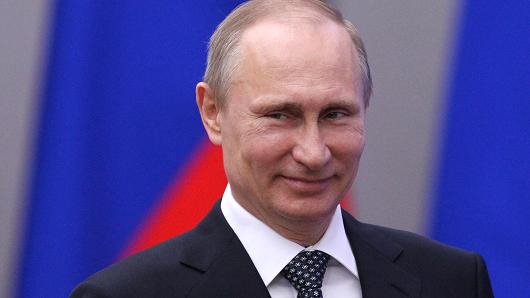A majority of Republicans in a new NPR/Marist poll say Russians either were not involved in 2016 election hacking or that the Russians pose no threat at all to future U.S. elections.
That view contrasts dramatically from the concerns expressed about Russian cyberattacks at the Pentagon, on Capitol Hill and within the State Department.
Former Director of National Intelligence James Clapper was recently asked if, at this point, the intelligence community has any doubt that the Russians interfered in the 2016 election. His response: “Absolutely none.”
The fear is that Russian cyber warriors have stepped up their game, hoping to wreak havoc by stealing military secrets, shutting down a major portion of the U.S. power grid, or rigging the next U.S. election. Military.com reported earlier this year that preventing cyberattacks has emerged as a top priority at the Department of Defense and within federal agencies that interact with key industries across the U.S. economy.
In Washington, officials have long pushed aside the arguments that the 2016 Russia story is greatly overblown or a hoax, a Democratic means to taint Donald Trump’s election win. Congressional Republicans who understand the implications far better than the general public — especially far better than the Trump partisans — realize that next time the Kremlin’s election target could be the GOP.
“I’m deeply concerned that we could be here in two or four years talking about a much worse crisis,” said North Carolina GOP Sen. Richard Burr, chair of the Senate Intelligence Committee, at a June Capitol Hill hearing.
Former FBI Director James Comey testified before Burr’s committee last month that in 2016 Russian operatives launched a “massive effort to target government and nongovernmental — near-governmental — agencies like nonprofits.”
Burr responded: “What would be the estimate of how many entities out there the Russians specifically targeted in that time frame?”
Comey: “It’s hundreds. I suppose it could be more than 1,000, but it’s at least hundreds.”
Nuclear power plant targeted
A few weeks later, Congress learned that Russian efforts to hack state election departments were far more sinister than previously believed.
Though none of the election returns were altered, voter registration records stolen by Russian actors contained driver license numbers or the last four digits of voters’ Social Security numbers.
More recently, the Kremlin emerged as the prime suspect as hackers working for a foreign government breached at least a dozen U.S. power plants, including the Wolf Creek nuclear facility in Kansas.
The suspicion remains among U.S. officials that the attackers were searching for vulnerabilities in the nation’s electrical grid. Russian hackers previously took down parts of the electrical grid in Ukraine, an operation that apparently served as a test for their increasingly advanced cyber tools to disrupt power supplies.
Since the November election, U.S. intelligence and law enforcement agencies report heightened attempts by suspected Russian intelligence officers to enter the U.S. while posing as businessmen. According to one report, the Russians may now have nearly 150 suspected intelligence operatives in the country.
The Kremlin initiative is aimed at hacking federal agencies for intelligence, as Russian spies have tried to gain employment at places with sensitive information.
Concerns center on the number of temporary visas issued by the State Department to Russian travelers. The problem is not new but it appears the Kremlin was emboldened after the Obama administration failed to respond in any significant manner to intelligence findings of Russia meddling in the 2016 election.
Army general’s email hacked
Beyond seeking highly classified Pentagon materials, the Russians have converted basic spying techniques to social media.
Officials say that the scam often involves the use of photos of attractive Russian women on Facebook to become friends with U.S. military service members and prod them for information. Becoming Facebook friends with American soldiers also gives foreign agents the ability to post Russian propaganda that will show up on their news feeds.
A recently retired NATO commander, U.S. Army Gen. Philip Breedlove, was targeted last year by a so-called “phishing” expedition. Emails hacked from his Gmail account were published on the Russian front site DC Leaks, and Breedlove said he was recently targeted with a series of more than a dozen sophisticated phishing emails purporting to come from his bank.
In addition to Russian proxy sites like DC Leaks, the Kremlin has latched onto fringe online networks and websites that purport to support American veterans while also engaging in conspiracy theories.
In the fall of 2013, Veterans Today, a supposed news site that offers former service members help finding jobs and paying medical bills, established a partnership with New Eastern Outlook, which is published by the government-chartered Russian Academy of Sciences. The result has been headlines such as “Ukraine’s Ku Klux Klan — NATO’s New Ally” and this claim about chemical weapons attacks by Russian ally Syria: “Proof: Turkey Did 2013 Sarin Attack and Did This One Too.”
Propaganda, hacking and cyberattacks are serious business inside the Kremlin, a former Russian journalist warned last fall.
“For them, it’s actually a real war, an ideological war, this clash between two systems,” said Sufian Zhemukhov, now a researcher at George Washington University.



